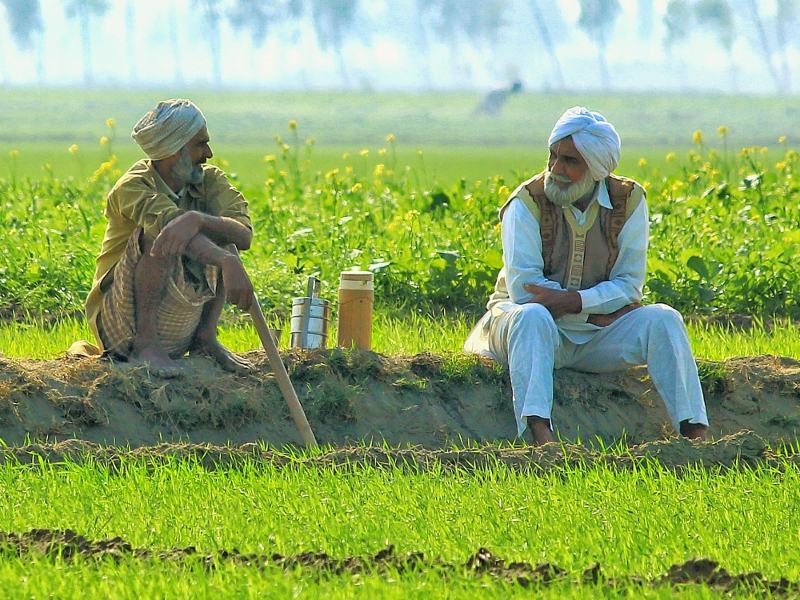By Sarabjeet Dhody Natesan
The farm bills will lead to a situation of under cultivation and underproduction of food grains. The lack of a Minimum Support Price (MSP) in private transactions will hurt farmers and help the corporate sector, because they will become agents for the government to import food grains and other agricultural commodities. Eventually, land-banks sold at throwaway prices will be aggregated to create corporate farms or other establishments, even as agricultural workers are pushed into cities to be used as cheap labour for large industrial complexes.
Let us look at another government scheme to understand the way this scenario can play out.
In 2014, after NDA’s overwhelming victory, The PM mocked and berated MGNREGA in his inaugural address to the Parliament and the nation. He called it a blunder, yet promised to leave it in the law books to remind the country of the monumental stupidity of the UPA.
In time the PM did realize that it was the most efficient process available to disseminate benefits to rural areas and made a big show of increasing the budgetary outlays to the scheme. However, the deceit was evident. The increased allocation was balanced out by not releasing allocated funds and effectively drying out the scheme. This subterfuge was evident during the migrant crisis the country witnessed during the unplanned lockdown when MGNREGA was heralded as the vehicle of recovery but was never fueled up.
MGNREGA mandates weekly or fortnightly payments and the wait for wages to those rural households fortunate enough to get a job card and guaranteed employment has now gone up to almost three-plus months. The vast rural labour force has been left without any safety net to mitigate the economic distress they find themselves in. This example has been provided to indicate how a policy need not be deregulated to stop it from helping people; it is possible to drive it to the ground by withholding resources required for it to be implemented effectively. The farm bills surreptitiously introduced first as ordinances and then rushed through parliament point to similar Machiavellian tactics of the government.
Since 2016, the PM has appropriated the space of the government to himself. There is a complete absence of other elected BJP representatives. They surface occasionally, add their voice to the pro farm lobby or display a pro-government stance, and then disappear till the next time. In introducing the three farm bills perhaps, the PM was expecting passive submission or a capitulation after token resistance. Certainly, the large-scale farmers’ agitation was not anticipated given the docile acceptance of policy, starting from Demonetization (2016), Implementation of flawed GST (2017), cushioning of Jio’s entry into telecom space (2016), a controversial Rafale Defense deal (2017) that the PM has pushed forward so far. Demonetization and the flawed GST implementation have largely bankrupted the government. The deficits have been financed largely by sales of public sector undertakings. Quite frankly, the government is broke and it has been abundantly clear in its inability to provide any support to the economy devastated by the COVID related lockdown. The government doesn’t have the financial capacity to support the MSP and pay for the grains that it picks up from the market.
The government probably thought it could handle any confrontation resulting from the implementation of the three farm bills by following the tried and tested formula of ‘hyper-nationalism’ or ‘minority identity’ hinged on the support of his hard-wired middle- class urban followers, euphemistically referred to as Bhakts (devotees).
Now, in the face of rising anger and protests, the govt may agree to the inclusion of a codified MSP in the farm bills, as a face-saving device. However, there is more here than the over-simplified focus on the MSP. The government of India through the Food Corporation of India purchases huge quantities of food grains for two purposes, for the retail Public Distribution System and to stock reserves in case calamities precipitate a crop failure.
A considerable amount of food grain is also procured by big corporates in the retail segment of selling ‘atta’ (wheat flour), and a quick look at the books of ITC and other major players in this space will tell you that it is not a profit-making segment for almost all of them. The payment of MSP for wheat from the mandis makes this business unviable; the availability of generic ‘atta’ in the informal markets (chakkis and other small flour mills) forces the corporates to sell their branded products at lower prices, effectively making their profit margins low. This was also seen in the failure of Shaktibhog atta, an early pioneer in the branded atta space, currently facing court proceedings with huge uncleared NPA against its name.
The entire farm sector will collapse without the MSP. Raising food grains stock limits and codification of contract farming has created a fear psychosis among farmers. The fear is justified because corporate players creating enough stock over the course of a few seasons forces farmers to sell at lower prices in subsequent ones. Further, contracts will push the farmers into an unfamiliar and intimidating dispute resolution system that involves civil servants not courts.
Thus, two of the bills (essential commodities stock limits, contract farming) play equally important roles in this drama. The strategy seems simple – create a genuine fear of withdrawal of support price, hoarding, and price gouging. Create a situation of chaos. Finally agree to put MSP in the bill. However, abstain from the markets or procure far lesser quantities of food grains, citing lack of funds, or even fudge data, as has been done abundantly in the past. And open the arena for the private sector to enter the market.
MSP has been branded as evil, a price floor set too low. In reality, without a complete and total MSP support, which anyway is not implemented fully even now, and the biggest buyer (government) pulling out midway, the space is available for the corporates to employ predatory tactics of buying at lower prices outside the mandis. Essential commodities bill will provide the leeway of stocking goods bought low, to be sold later. And also increase the bargaining powers of the big buyers.
Over the years, with the much-touted crop insurance failing more often than the crops and formal structures of farm credit drying up, agriculture has fallen on hard times indeed. With the middle man (Arhtiyas) being edged out and unable to find a place in the new farm policies implementation, the farmers will not have access to the informal credit system built around the commission agents. Banks will rely on banking policies to shortchange agricultural credit and farmers will have no recourse except to become contract farmers. Additionally, the Public Distribution System (PDS) which is the backbone of our country’s food policy and which is stocked from the food grains collected in the mandis will collapse. Will the government procure from the market and then stock the retail ration shops, or will it discontinue the PDS, or will it rely on the Direct Benefit Transfer model? The government has not weighed in on the consequences of this obvious cost of the new farm bills.
The current farm bills have to be repealed. New legislation should be discussed, debated, and re-drafted, keeping the larger interest of the agricultural sector, the farmers, and the country in mind.
We owe it to our farmers.
Disclaimer: The opinions expressed within this article are the personal opinions of the author. AlignIndia does not take any responsibility for the content of the article.
(Sarabjeet Dhody Natesan is a student of Economics and Policy and teaches at a Liberal Arts University in the South of India. She lives near her favourite seashore, in Chennai, with her family)


